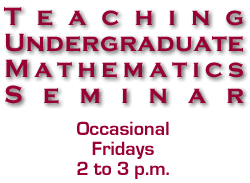Introduction
Teaching is a significant component of most mathematicians' careers. Just as future lawyers and doctors must study and train to become more proficient in the skills needed for their professional careers, future mathematicians must study and train to improve their teaching skills. The goal of the Teaching Undergraduate Mathematics Seminar is to provide opportunities during the semester to discuss and reflect on teaching philosophies and practices in order to become better teachers now and to prepare for the teaching activities which will be part of future professional careers.
The seminar presentations and discussions are designed primarily for mathematics graduate students, but anyone interested in mathematics teaching is welcome to attend.
Please direct any comments or questions about the seminar to Mathematics Preceptor Derek Bruff (bruff [at] fas.harvard.edu).
Upcoming Sessions
-
 Inquiry-Based Calculus
Inquiry-Based Calculus
with John Neuberger, Regents Professor of Mathematics at the University of North Texas
April 22, 2005, 2 to 3 p.m., SC 316
Is it possible to teach calculus in a such a way that the students feel that they are discovering the fundamental ideas of calculus for themselves? Inquiry-based calculus is an approach to teaching calculus that can do just that and, by doing so, give students a deep understanding and appreciation of the calculus.
At this week's TUMS session, we are honored to have John Neuberger, Regents Professor of Mathematics at the University of North Texas, show us how inquiry-based calculus works by holding a mock class with undergraduate students. Please join us to welcome Professor Neuberger and to learn about an interesting, non-traditional way of teaching calculus.
-
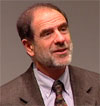 How to Organize a Lively Lecture:
How to Organize a Lively Lecture:
A Class Visit and Luncheon Discussionwith Benedict Gross, George Vasmer Leverett Professor of Mathematics and Dean of Harvard College
April 29, 2005
Lecture: 10 to 11 am, Jefferson 250
Lunch and Discussion: 11:15 am to 12:30 pm, SC 317Want to square the circle? Well, you can't. But you can find out how Galois Theory proves you can't while also finding out more about how to organize a lively lecture.
Just come to an open house held by Dean Benedict Gross in Math 123 as part of the Bok Centers Faculty Lecture and Lunch Series.
Everyone is welcome to attend the Math 123 class Dean Gross will teach on Friday, April 29, from 10:00 to 11:00 in Jefferson 250. A discussion of the pedagogy will follow over lunch in the Bok Center (Science Center 317) from 11:15 to 12:30.
No mathematical knowledge is necessary to use this open house as a point of departure for discussing pedagogy in general and lecturing in particular. Dean Gross will provide a brief introduction to Galois Theory for nontechnical visitors at the beginning of his lecture.
Past Sessions
-
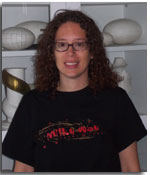
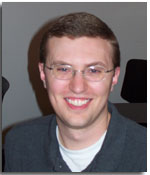 Motivating Students
Motivating Students
with Angela Vierling-Claassen, and Derek Bruff, Preceptors in Mathematics
April 15, 2005, 2 to 3 p.m., Science Center 316
How do you motivate your students to learn mathematics, particularly students who are taking your course as a requirement and may not be that interested in mathematics? To what extent can we motivate our students, and how much responsibility do we have for doing so? What strategies can we employ to motivate our students, and in what ways do we inadvertently de-motivate our students? In this TUMS session, we will discuss these questions and look at what educational research tells us about motivating students.
-

 Understanding What Your Students Are Thinking
Understanding What Your Students Are Thinking
with Angela Vierling-Claassen, and Derek Bruff, Preceptors in Mathematics
March 11, 2005, 2 to 3 p.m., Science Center 316
Just what are your students thinking during class? Do they understand the example you just went over or are they still confused? Is your teaching having an impact on their learning? If you have ever felt like you were teaching to a room full of blank stares or if you would just like to understand your students a little better, then this session is for you. We will introduce you to several useful techniques for finding out what your students understand, what they don't understand, and how you can teach them more effectively and more efficiently.
-
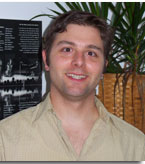 Seeking Points: A Case Study
Seeking Points: A Case Study
with Matt Leingang, Preceptor in Mathematics
March 4, 2005, 1:30 to 3 p.m., Science Center 316
Note that this session will begin at 1:30 pm instead of the usual starting time.
"Can I talk to you about my grade?" one of your students says as he enters your office shortly after you've handed back an exam. You might not describe the conversation that is likely to follow as pleasurable, yet assessing students and talking about grades with students are important parts of teaching. Can we change the adversarial nature of such events and make them teachable moments?
The meeting this week will take the form of a case study. Participants will read a short story about a student seeking points on a recently graded test. Following this, participants will discuss as a group the issues and problems the story raises as well as possible solutions to these problems. Thinking and talking about these issues will prepare you to face them when they arise in your own teaching.
-
Managing an Interactive Classroom
with Kathy Paur, Mathematics Graduate Student, and Robin Gottlieb, Senior Preceptor in Mathematics
February 25, 2005, 2 to 3 p.m., Science Center 316
There's a lot of hype here about running an interactive classroom; it is said that's why we teach in small classes. BUT... we have a syllabus to teach and material to get through... the students don't always know the answers... sometimes they say the wrong thing... sometimes they don't like to talk... some of them talk too much... confused students can't ask clear questions... if students are running the classroom, why is the teacher getting paid?
Bring your questions and concerns.
-
 Caught on Tape: Clips of Teachers in Action
Caught on Tape: Clips of Teachers in Action
with Derek Bruff, Preceptor in Mathematics
February 11, 2005, 2 to 3 p.m., Science Center 222
Watching someone else teach is a great way to reflect on and improve one's own teaching. In this session, we'll watch and discuss several video clips of experienced teachers in action. We'll focus on the choices the teachers made both before and during class and how you can think critically about the choices you make as you teach.
-

 Making Lesson Plans
Making Lesson Plans
with Matt Leingang and Derek Bruff, Preceptors in Mathematics
February 4, 2005, 2 to 3 p.m., Science Center 222
"Before anything else, preparation is the key to success." When Alexander Graham Bell, inventor of the telephone, said that, he probably wasn't talking about teaching, but his maxim holds true for teaching nonetheless. In this session, we'll look at the preparation that precedes a successful class. We'll analyze the components of a good lesson plan, discuss ways to plan lessons quickly, and practice our lesson planning skills.
-
 Grading 102: More Nuts and Bolts of Good Grading
Grading 102: More Nuts and Bolts of Good Grading
with Andy Engelward, Preceptor in Mathematics
December 17, 2004, 2 to 3 p.m., Science Center 222
This second session on grading will feature a number of grading examples selected to illustrate POGGs (Principles of Good Grading) and PORCs (Principles of Rubric Construction). One main goal of doing this is to help you become more efficient in your own grading, an especially timely goal as we head into finals season in January! Feel free to bring in examples of questions you might have graded from earlier this semester, if you want to share your own grading experiences in this discussion meeting.
-

 Grading 101: The Nuts and Bolts of Good Grading
Grading 101: The Nuts and Bolts of Good Grading
with Tom Judson and Andy Engelward, Preceptors in Mathematics
November 19, 2004, 2 to 3 p.m., Science Center 316
In this session, we will investigate how it's possible to grade successfully without spending an outrageous amount of time on it. We'll go through several grading demonstrations to explore the ins and outs of good grading, and figure out techniques that everyone can use to make their grading go well.
-
 The Act of Teaching
The Act of Teaching
with Nancy Houfek, Head of Voice and Speech for the American Repertory Theater at Harvard University (via tape)
November 12, 2004, 2 to 3 p.m., Science Center 316
"The Act of Teaching: Theater Techniques for Classroom Presentations" is a video featuring Nancy Houfek, the head of Voice and Speech for the American Repertory Theater here at Harvard, demonstrating how we can use our voices and body language to communicate ideas more effectively and improve our presentation skills. The video discusses how to engage an audience and well as ways to overcome "stage fright" when teaching.
